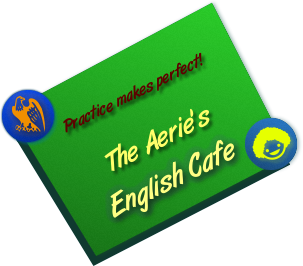Please, spare me your lectures...I don't want to repeat what I've already born in mind again and again. And I want to proceed to what's needed to get it done...
And, the first and foremost thing is the If Clauses. This topic doesn't seem to have anything to do with Translations, but it's worth noting since it's associated with the thing that called Grammars which is one of the most critical things to understand before you can translate any kinds of documents as if you're walking along the golden field...
Let's get to the point, then. The If Clauses is popular, that's the reason why it's worth noting and there are three main kinds of if clauses, not to mention a special kind that can be changed unpredictably...At least that's what I meant to describe it, no pun intended.
Maybe I've already learned them from my grammar book, maybe not. But they seem similar...and it's a shame that I like to use if clauses too, but not able to recognize their structures. Thanks to you, though. For you'd mentioned this grammar spot in this course...
Well, as everyone knows. The If Clauses are the collective of clauses that state the condition in the sentences, hence its parental topic: The Conditional Sentences. This topic talks about not only 3 types of if clauses and the mixed types ones. It also talk about the more complicated matters regarding this topic too. But I'll only talk about if clauses and the mixed conditionals for now...complicated things come later.
The structures of three basic if clauses are easy to understand, as follow :-
And, the first and foremost thing is the If Clauses. This topic doesn't seem to have anything to do with Translations, but it's worth noting since it's associated with the thing that called Grammars which is one of the most critical things to understand before you can translate any kinds of documents as if you're walking along the golden field...
Let's get to the point, then. The If Clauses is popular, that's the reason why it's worth noting and there are three main kinds of if clauses, not to mention a special kind that can be changed unpredictably...At least that's what I meant to describe it, no pun intended.
Maybe I've already learned them from my grammar book, maybe not. But they seem similar...and it's a shame that I like to use if clauses too, but not able to recognize their structures. Thanks to you, though. For you'd mentioned this grammar spot in this course...
Well, as everyone knows. The If Clauses are the collective of clauses that state the condition in the sentences, hence its parental topic: The Conditional Sentences. This topic talks about not only 3 types of if clauses and the mixed types ones. It also talk about the more complicated matters regarding this topic too. But I'll only talk about if clauses and the mixed conditionals for now...complicated things come later.
The structures of three basic if clauses are easy to understand, as follow :-
- Simple Present + will-future (or modal + infinitive)
- Simple Past + would + infinitive
- Past Perfect + would + have + past participle
The first type is also known as Present Real Clause since the condition within the clause is suggested as being possible to fulfill.
The examples to this type of if clauses will be like this :-
The examples to this type of if clauses will be like this :-
- If I get up early, I may have time to exercise.
- If you underestimate your opponent, you may end up as a loser.
- If Johnson pays more attention to the class, he will do better in the exam.
Let us proceed to the next type of the if clauses then. This type of if clause states the condition that may be fulfill only in theory or in the past, but no longer possible in the present time or by practical means. Sometimes it's called "Present Unreal" because the condition is no longer be able to fulfill in the present time since such situation mentioned in the condition is a thing of the past.
Let's see its samples then...
Let's see its samples then...
- If I could reverse time, I could find a way to redeem myself from my sins.
- If I Tim wasn't a lazy type, he might perform better than other classmates.
- If we were rich, our living wouldn't be as pathetic as you know.
Let's waste no time then, the third type of the if clauses is waiting. This kind of if clauses state the condition that can't be able to fulfilled, no matter by the time being or by the past time. It sounds like such condition can only be fulfilled only when you dream for it. Apart from that, it's absolutely impossible...at least in the thought of those who think so, though.
I've already mentioned its structure, let's take a look into its samples then...
I've already mentioned its structure, let's take a look into its samples then...
- You know what? There are so many good things happen to me while I was in the junior high school, if I had been a better man, I'd have seen even better things than I'm facing right now.
- If Damian had learned the truth, he might have been less merciful than I am.
- If we had won the lottery, we could have bought things that we always dream of.
And that's all about three major types of If Clauses, there is something I want to add into this entry by the way...
It's about another way to write these conditional sentences; you can simply swap the position of if clause with that of the main sentence. It will be like this :-
It's about another way to write these conditional sentences; you can simply swap the position of if clause with that of the main sentence. It will be like this :-
- Tim might perform better than other classmates if he wasn't a lazy type.
Can you see any differences? The position of the if clause and the main clause are changed as you can see, but the meaning is still the same. It's as simple as that.
As I've stated before, there are mixed types too. That means you may combine different types of conditions together, but that's easy to say. Let's see what it's like then...
Past --> Present :-
- If we had finished homework in time, we wouldn't have to skip this class.
Past --> Future :-
- If I had known that you love me no longer, I would give in and find a better one for sure.
Present --> Past :-
- If George had won a big lottery prize, he might have bought this house.
Present --> Future :-
- If you were in Seville, I would be spending my time with you there.
Future --> Past :-
- If Thomas wasn't sleeping, I would have invited him to join my party.
Future --> Present :-
- If I didn't have any appointment next month, I'd be relaxed.
That's all for now. However, I'll proceed to the next chapter as soon as I'm ready...



